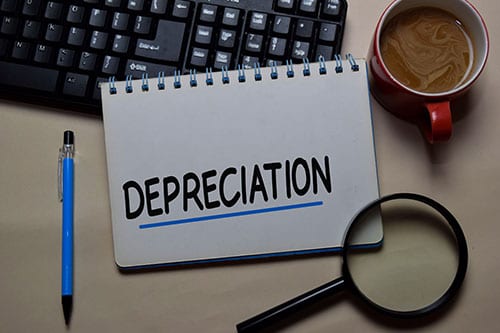Tax Depreciation Tips
Depreciation on taxes is kind of a tax deduction schedule for big ticket items. You may already be well familiar, but in case you are not, let us give an easy example. If I buy a box of copier paper for my business, I can deduct the whole price at once, I will probably use it during the same year. But if I buy a copy machine for my business, I will be using that copy machine for several years, and I must deduct it bit by bit over the time that the government considers a reasonable service period for the copier. It is not a bad system really, but businesses do need to use all their available capital wisely, and not being able to fully deduct something and get back some tax refund can be painful. That makes it important to understand the tax depreciation schedules, including what can be deducted immediately, and what needs to be depreciated, and for how long, before making major capital purchases. Let us explore the categories and primary rules on depreciation.
Now keep in mind, we are not here in this article to lay down the law, or to interpret the law for you, merely to give you some broad guidelines, and initiate conversations you can have with your tax accountant, or possibly an attorney. Please make sure that you have these professionals as a part of your professional team as they are the only ones that the law allows to provide you with personal legal or financial advice.
We would suggest first that you find out from your accountant what must be depreciated, and what can be claimed as an immediate deduction. Do this before you start buying items. And if you discover that the up-front costs are too high, or the depreciation schedule is too long, then check into the alternative of leasing the item. This generally requires much less capital than buying it outright, or putting it on a credit card, or obtaining a loan where you will pay interest.
Next, let us become familiar with the primary categories of depreciation, and the length of the depreciation schedule. Here are the most common categories:
Three Year Depreciation—Includes some livestock, tractors, and certain manufacturing tools.
Five Year Depreciation—Includes office equipment and computers, cars and light trucks, and construction assets.
Seven Year Depreciation—Includes appliances and office furniture, plus property that hasn’t been place in other categories.
27.5 Year Depreciation—Residential Rental Real Estate (Note: Land is not depreciable, only improvements)
39 Year Depreciation—Commercial Buildings
In addition to the length of the depreciation schedule, there are different versions of the method of depreciation.
Straight Line Depreciation—This is the easiest method to use, simply dividing the value of the item by the number of years for depreciation. It is the slowest method of depreciation, so it is not commonly used.
Accelerated Depreciation—There are multiple accelerated methods, but the most common is called Modified Accelerated Cost Recovery System (MACRS). With this method, you are allowed to move most of the value of the acquisition forward to the first few years and deduct more during those years. This is an advantage for most businesses but be forewarned that a deduction must be offset by income, and some new startup businesses do not have enough income to offset their potential deductions. In this case, it would make more sense to slow down the depreciation schedule by using the straight-line method.
I mentioned above that there are some items that you can deduct all at once that would ordinarily require depreciation. The rules for your tax filings for 2020 include that it must be tangible personal property, not real estate, that it must be used in a trade or business, that you must take the deduction in the year you start using the item in your business, and that the deduction cannot be more than your earned income for the business, or your individual earned income if you are an S Corporation, partnership, or multi-member LLC. So, this is another item you can discuss with your tax accountant if you purchased any large personal property for your business during 2020.
We all know that it is challenging to build and grow a business, and that the government adds its own challenges to that. But keep in mind that it is worth it. Owning a business is our individual way of creating a future and a legacy for ourselves and our families. We wish you all the very best in that.
______________________________________________
I https://turbotax.intuit.com/tax-tips/small-business-taxes/depreciation-of-business-assets/L4OStLQEL#:~:text=Each%20has%20a%20designated%20number,and%20assets%20used%20in%20construction) from the turbotax website.

